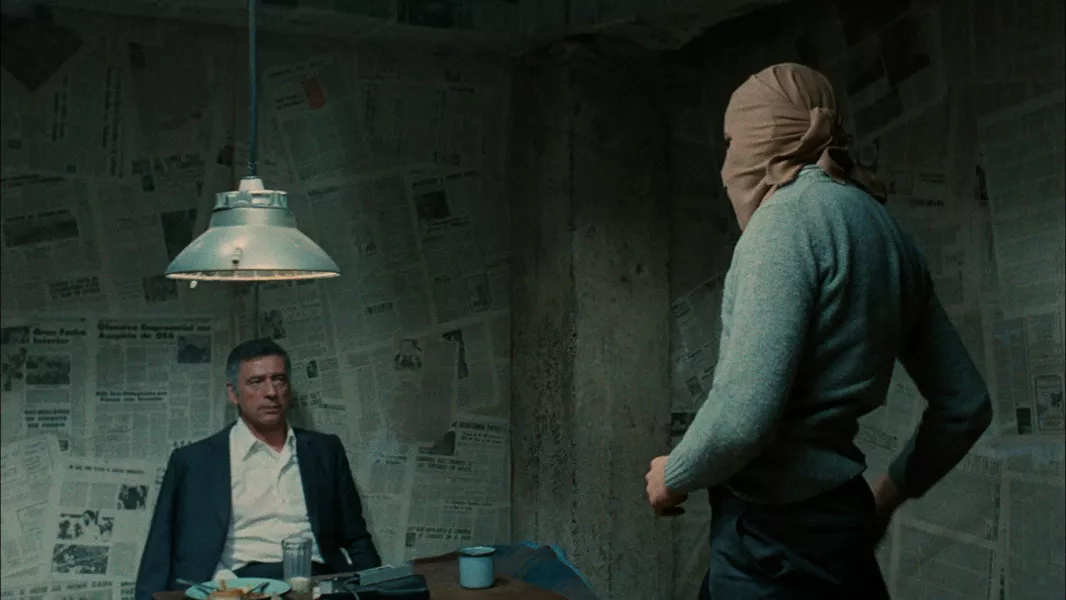
english below
Costa-Gavras’ meeslepende politieke thriller stelt corruptie en staatsgeweld binnen de Griekse regering en de groeiende macht van de militaire junta aan de kaak. Deze klassieker in het genre legt de dunne lijn bloot tussen democratie en dictactuur, en blijft ook vandaag nog relevant in zijn kritiek op politieke onderdrukking.
De immer innemende Franse topacteur Jean-Louis Trintignant speelt een magistraat die op onderzoek gaat wanneer een lid van de linkse oppositie slachtoffer wordt van een verkeersongeval. Trintignant’s personage is gebaseerd op Christos Sartzetakis die later president zou worden van Griekenland van 1985 tot 1990.
Z was de allereerste film die een Oscarnominatie in de wacht sleepte voor zowel Beste Film als Beste Niet-Engelstalige Film. Dat laatste beeldje kreeg Costa-Gavras mee naar huis, net zoals een prijs van de jury in Cannes en nog een handvol andere grote internationale prijzen.
Z maakt deel uit van ons programma (R)EVOLUTIE dat de focus legt op universele thema’s zoals verzet en vrijheid, en het belang van cinema belicht in het geven van een stem aan onderdrukten.
ENG
The film is in French with English subtitles
Costa-Gavras’ riveting political thriller exposes corruption and state violence within the Greek government and the growing power of the military junta. This genre classic exposes the fine line between democracy and dictatorship and remains relevant today in its critique of political repression.
The always-engaging French actor Jean-Louis Trintignant plays a magistrate who goes to investigate when a member of the leftist opposition becomes the victim of a traffic accident. Trintignant’s character is based on Christos Sartzetakis, who became president of Greece from 1985 to 1990.
Z was the first film to win an Oscar nomination for both Best Picture and Best Non-English Language Film. Costa-Gavras took home the latter statuette, as well as a jury prize at Cannes and a handful of other major international awards.
Z is part of our programme (R)EVOLUTION which focuses on universal themes like resistance and freedom, and which shines a light on the importance of cinema as a tool for giving a voice to the oppressed.



